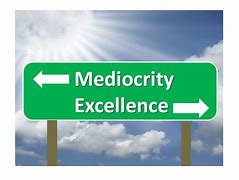Your Idea Is Not Crazy
During a recent panel discussion on entrepreneurship I was asked the question, “What do you know now that you wish you’d known then?” It took me a while, but then I realized that one of the best insights I had was simply that “your idea is not crazy!”
Since realizing that I wanted to be an entrepreneur I have wrestled with idea after idea and drafted business plan after business plan seeking to find the formula for my financial freedom. Over time I’ve had countless meetings, meals and phone conversations aimed at securing direction for my professional path.

Most of these conversations were encouraging in some way, but many more than a few told me to “hold up,” “go another direction,” “now may not be the time” or “I’m not sure this dog will hunt.” One concerned friend made a special trip to my home to say “if you don’t have a million dollars in savings, you need to come on back to work at the bank.” And of course, I’ve even heard “Dude, this idea is CRAZY!”
More than one of my more trusted mentors went so far as to verbally commit to investing in one of my projects and then followed up with a letter to withdraw from that commitment within a week. I don’t think that my experience is entirely uncommon, but you can imagine how disappointing those trips to the mailbox were.
To be sure, some of the input that I have received over the years has been tough to swallow. But, that doesn’t mean that it was all wrong. Just because I wanted be be an entrepreneur doesn’t mean that I was mature enough, competent enough or financially prepared to execute on my ideas.
Over time my entrepreneurial vision (and the skill to go along with it) has become more refined, grown, evolved, divided, settled, boiled, regenerated and emerged. Remarkably, in my case, from the first outline to the most recent executive summary, more than a decade later, the core objective has been the same. In other words, my idea wasn’t crazy!
Neither is yours.
Like me, you just have to figure out how to get there from here.
I believe that it’s crucial that we are all required to go down a developmental path in order to execute and succeed. But – that doesn’t mean that the idea that you know in your heart of hearts must be pursued is without merit. You just have to be patient and impatient, and studious and hungry, and lucky (where preparation meets opportunity) and tenacious as you go down that path.
In fact, I believe that the best ideas are akin to a calling – something that you are compelled to do, even beyond what seems logical; something that won’t go away, even when you try to resist; something that keeps you up at nights; or that lives in the place your mind drifts to when your goal is to relax and forget it all. If that’s the kind of idea you have; then I’d bet it’s not crazy – even if your friends tell you it is.
The best encouragement for us in this regard may come from the Bible. Let me share some examples:
· Joseph dreamed that he would become a powerful man. His own brothers called him crazy and threw him in a pit… But eventually he became governor of all of Egypt.
· Job was a righteous man. When he lost all of his wealth his family encouraged him to curse God. He refused and his wealth was restored twofold.
· Moses demanded that Pharaoh let the slaves go. Over and over again he appealed to the king, before eventually leading his followers across the Red Sea on dry land.
· Joshua was compelled to initiate the Battle of Jericho by unconventionally marching around the city day after day. They thought he was crazy, but on the seventh day the walls fell and the city was taken.
Each of these historical spiritual figures had a vision, a mission, a compulsion, a calling – and the people around them thought they were crazy. You will also note that in each case, between the dream and the realization, there was one point of consistency – Pain.
Joseph had to endure prison; Job did battle with the devil through prolonged physical illness; Moses suffered the scorn of his adopted brother and pressed on through numerous plagues while also dealing with the collective anger of the slaves whom he’d freed; and even Joshua couldn’t just go take the city. He had to overcome self-doubt while leading the soldiers and priests through many hours of what must have seemed to be pointless effort. Nevertheless, in each case their calling was fulfilled.
So, no, your idea is not crazy. It may take some growing and some pain to make your dream come true. But, stay true to your calling and execute!


















